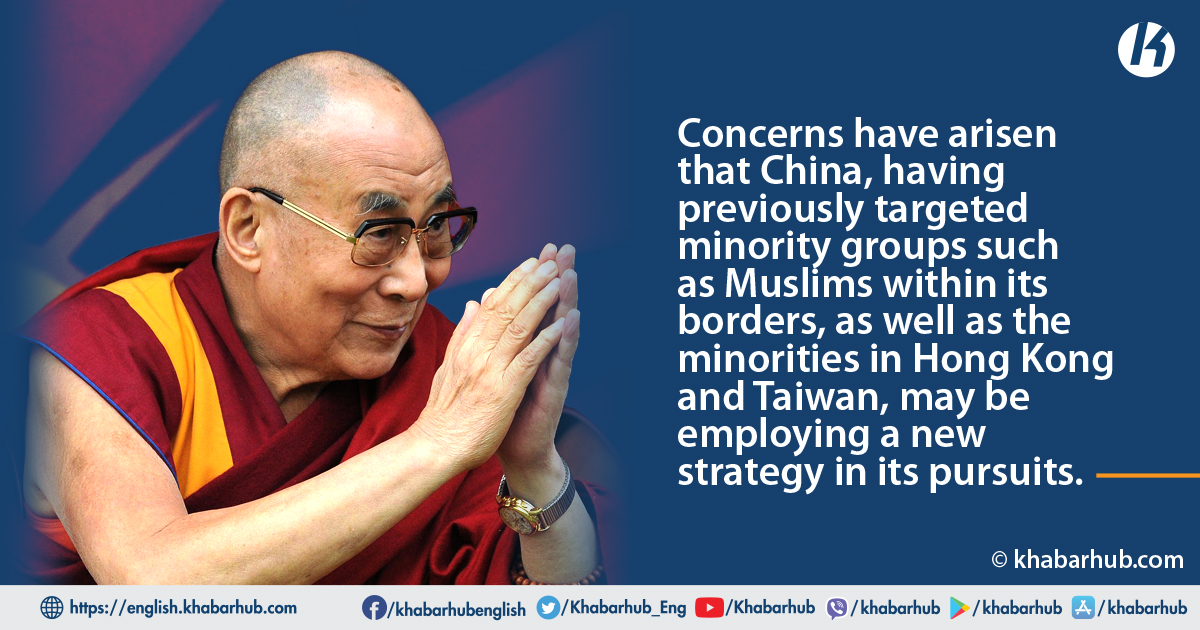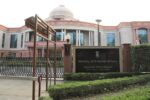China, employing a wide range of tactics to assert its global influence, has recently been embroiled in controversies and has disrupted cultural norms.
The question of the future Dalai Lama has emerged as a concern, as China’s actions and rhetoric have sparked fears of a potential assault on Tibetan culture.
The international community is keenly aware of China’s attempts to sow confusion surrounding the selection of the next Dalai Lama.
The issue of the succession of the next Dalai Lama has come to the forefront. China’s deliberate efforts to create uncertainty regarding the future Dalai Lama have raised concerns worldwide about potential threats to Tibetan culture.
The international community is well aware of China’s attempts to sow confusion and disrupt the traditional process of selecting the Dalai Lama.
On July 6, 2022, the Dalai Lama celebrated his 87th birthday. Currently residing in exile in India due to China’s actions, the Dalai Lama’s future succession has been a matter of concern.
The search for a new Dalai Lama follows a well-established tradition. In the past, two locations, Mongolia and India, were considered as potential birthplaces for the next Dalai Lama. However, objections have arisen due to China’s interventionist policies.
Chinese officials have made statements suggesting that they should have the authority to appoint the next Dalai Lama upon his passing, which has surprised and alarmed the international community.
The incumbent Dalai Lama has expressed the possibility that his successor may be found within the Tibetan community in India.
He has also acknowledged that China is likely to put forth its own candidate and claim to have identified the next Dalai Lama after his passing.
However, the Dalai Lama emphasized that such a claim by China would not be accepted or respected by the international community, as it is viewed as an interference in the traditional process of recognizing the Dalai Lama’s reincarnation.
Indeed, as per Tibetan Buddhist tradition, it is believed that the Dalai Lama is reborn after their passing.
The Dalai Lama himself has stated in the past that, following his death, he will be reincarnated and the child who embodies that reincarnation will be recognized and declared as the next Dalai Lama.
This longstanding tradition holds significant cultural and spiritual importance within Tibetan Buddhism.
Following the passing of the 13th Dalai Lama, Thupten Gyatso, in 1933, a two-year-old named Lhamo Thondup was recognized as his reincarnation and declared the successor to the Dalai Lama lineage.
The current Dalai Lama, the 14th in the line, is now in his 87th year and has been residing in Dharamshala, Himachal Pradesh, India for the past 64 years.
Dharamshala is home to a significant Tibetan Buddhist community, with approximately one lakh Tibetan Buddhist pilgrims residing there.
The Lama, who held both spiritual and political leadership in Tibet, sought refuge in India after the unsuccessful uprising against Chinese soldiers from March 10-17, 1959.
Since then, the Lama has been actively engaged in raising global awareness about the lost territories, rights, and religious practices of the Tibetan Buddhist tradition.
China has referred to the Nobel Peace Prize laureate, the Lama, as a “dangerous divisive” figure. Interestingly, China appears to be more concerned about the future Dalai Lama than the current one.
The Lama has expressed that China may attempt to appoint its own Dalai Lama, but such a candidate would likely face rejection from the international community. This prospect would undoubtedly create significant challenges for China.
Renowned geopolitical analyst Robert Barnett shares a similar viewpoint. Barnett suggests that after the current Dalai Lama’s passing, there could be two announcements regarding the future Dalai Lamas.
One announcement would follow the traditional process from the Dalai Lama’s ashram or place of residence, while the other announcement would come from the Chinese Communist Party, as China has indicated on multiple occasions.
China asserts that this action falls within their rights and authority.
The Lama, who has long advocated for an independent Tibet, stepped down from the leadership of the Tibetan government in exile in 2001.
The Lama has expressed a desire to deliver a lecture to university students if given the opportunity to visit China in the future.
The Dalai Lama acknowledges China as a great country with a rich history of civilization.
However, due to the presence of an authoritarian regime, there is no aspiration to return to China.
The Dalai Lama has emphasized that the strength of their cause lies in truth and moral conviction, rather than relying on military power or China’s weaponry.
Following the Dalai Lama’s settlement in India, it is unsurprising that the issue of Tibetan independence and the Dalai Lama’s role has garnered significant attention on the international stage.
India, as a staunch supporter, has been at the forefront of raising objections and expressing concerns regarding China’s actions and announcements.
In addition to the Tibetan cause, India has also experienced a long-standing border dispute with China, further influencing its stance in favor of the Dalai Lama.
Around a year and a half ago, Indian Prime Minister Narendra Modi conveyed his birthday wishes to the Dalai Lama and expressed support for the Tibetan people’s internal decision-making process. Similarly, a year prior to that, the United States also stated that the declaration of the next Dalai Lama should be made solely by the Tibetan people.
These statements reflect the recognition of Tibet’s right to determine its own future and select its spiritual leader without external interference.
According to traditional beliefs, the Dalai Lama, who is believed to be a reincarnation, holds the esteemed role of being the spiritual guide (Dharma Guru) of Tibetan Buddhism, as well as having political leadership responsibilities in Tibet.
Given that the global community is well-informed, it is unlikely to succumb to Chinese propaganda and will not endorse or accept any new candidate based on their favorability towards China.
The search for a new Dalai Lama follows a well-established tradition. In the past, two locations, Mongolia and India, were considered as potential birthplaces for the next Dalai Lama. However, objections have arisen due to China’s interventionist policies.
Last year, Penna Tshiring, the head of the Tibetan parliament in exile, strongly condemned China’s assault on Tibet’s spiritual and cultural beliefs, deeming it an unforgivable act.
Tshiring affirmed that the international community would reject China’s actions, highlighting the significance of preserving Tibetan heritage and denouncing any infringement upon it.
The Dalai Lama has outlined three possible methods for selecting his successor. The first is in accordance with the traditional belief of rebirth.
Another option is to designate a successor during the Dalai Lama’s lifetime. There is also the belief in emanation according to Buddhist Dharmalampvi.
The Dalai Lama emphasizes that as long as these options are available, there is no need to heed the Chinese government’s directives.
From being primarily regarded as the spiritual leader of Tibetans, the Dalai Lama has emerged as a globally admired figure due to his unwavering advocacy for Tibetan rights and freedom.
Despite his advanced age, the announcement of a new successor is not rushed, considering the Dalai Lama’s health.
It is possible that a successor will be declared after the Dalai Lama reaches the age of 90.
Since 2010, there have been no significant dialogues between Tibetan and Chinese leaders, leading to heightened activism from both sides. Unfortunately, the relationship between the two parties shows no signs of improvement.
According to Barnett, the Chinese government has initiated a new process and internal campaign, influencing numerous religious figures.
In 1995, the Dalai Lama himself announced Gedhun Choekyi Nyima as the new Panchen Lama, a highly esteemed position following the Dalai Lama.
Tibetans are increasingly aware that China can propagate extensive misinformation regarding the Panchen Lama and the new Dalai Lama. Amitabh Mathur, a former Indian adviser on the Tibet issue, attempts to claim authority over the Tibetan issue by asserting his own opinions as those of the Dalai Lama.
Given that the global community is well-informed, it is unlikely to succumb to Chinese propaganda and will not endorse or accept any new candidate based on their favorability towards China.
(Source: Various news agencies)









Comment